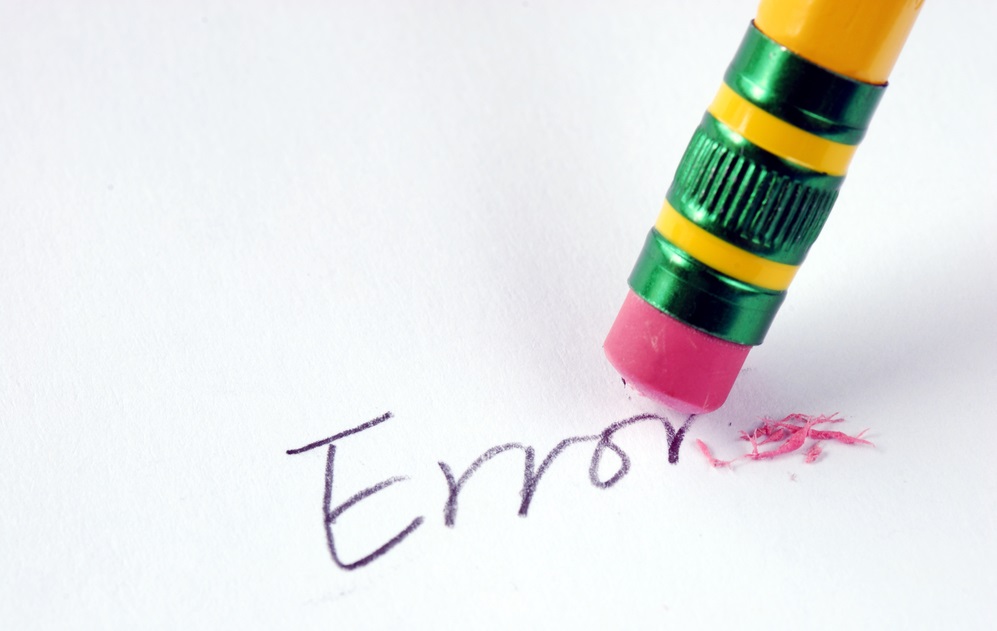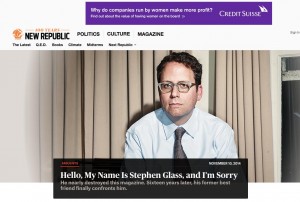A pair of head-scratching corrections issued in recent days illustrates how hard it is for news organizations to explain the errors of their ways to readers.
First came a doozy from Breitbart News which triggered ridicule from other news organizations when Breitbart buried its correction at the end of the article without bothering to fix the mistake in the story itself — even though it was a main point.
The article erroneously reported that Loretta Lynch, President Obama’s nominee for Attorney General, served on President Clinton’s defense team during the 1992 Whitewater corruption investigation. Breitbart soon appended this sentence in italics at the end: “Correction: The Loretta Lynch identified earlier as the Whitewater attorney was, in fact, a different attorney.”
Internet media watchdogs including Talking Points Memo pounced, noting that Breitbart had let the mistaken fact stand in the headline and the article itself. After bloggers and Twitter commentators cried foul, Breitbart finally pulled the original story from the Internet, leaving a “404 – Not Found” error in its place.
Perhaps more comical was a New York Times correction issued on Monday which attempted greater transparency about the nature of its error, but wound up being incredibly confusing. Unlike Breitbart, The New York Times did fix its article, but it also bent over backwards to explain in nuanced detail what it had gotten wrong.
The original story published on Nov. 5 was a rather convoluted tale of a photo of a Target bag boy that went viral and became an Internet meme, complete with imitators and historical references to similar images. Here’s how the NYT explained its mistake:
“Correction: November 10, 2014: An article on Thursday about the latest Internet sensation of “Alex from Target,” a picture of a teenager bagging merchandise at the retailer that went viral online, described incorrectly a subsequent Internet posting of “Kel from Good Burger.” It was a frame from the 1997 film “Good Burger” starring the actor Kel Mitchell; it was not a photograph of a teenager in a job.”
Got that? The Times also revised the actual sentence at issue in the story to add a parenthetical explanation of sorts: “Some began sharing photos of other teenagers in jobs: Kieran from T-Mobile, Steve from Starbucks, even Kel from Good Burger (meaning the actor Kel Mitchell in the 1997 film “Good Burger”).”
Compared to those bloopers, NPR’s corrections summary this week seemed downright tame. It wasn’t correcting anything in particular but did take a look at the type of errors the broadcasting giant typically makes.
NPR standards and practices editor Mark Memmott wrote in the company’s ethics blog that NPR issued an average of two corrections daily over the past month, which he said seemed a “pint-sized” amount compared to the “tsunami” of news reporting that it provides, including 37 daily newscasts and numerous shows. He noted that erroneous names accounted for seven of the mistakes, and erroneous locations accounted for a few others. NPR’s “Morning Edition,” for example, somehow confused Maine with Minnesota in a walk-up piece before the mid-term election.
Memmott called out other run-of-the mill factual errors, too, like “All Things Considered” reporting that IBM’s Watson computer had defeated world chess champions. That turned out to be a case of mistaken identity not unlike the Breitbart correction: It was another computer, named Deep Blue, that actually beat the humans.
AJR student reporter Kelsey Sutton contributed to this story.









Leave a Comment